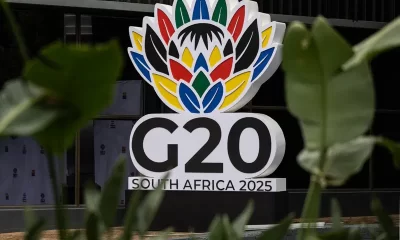Sports
Like Bosman, Like Kaepernick: Taking the Knee -By Ayobami Okerinde
On a personal note, taking the knee is now a norm one year after, it won’t continue till eternity. Despite taking the knee, players like Koulibaly, and some players have suffered racial abuses in the Serie A and from Hungarian fans respectively. During a game vs West Brom last season, Wilfred Zaha of Crystal Palace refused to take the knee and said “I feel like taking the knee now, it’s becoming… we do it before games and sometimes people forget that we have to do it. Trying to get the meaning behind it, it’s becoming something that we just do now and that’s not enough for me, I’m not going to take the knee.” Chelsea FC defender, Marcos Alonso, has become the latest player not to take the knee but rather point to the RESPECT badge on the jersey.

In Sola Owonibi’s Homeless not Hopeless, he described natives of the streets as individuals who lack but take the lack of others. Both Bosman and Kaepernick can be described as natives of their respective sport, who had to be the sacrificial lamb for others.
This is not the main focus of my article, but it is important to provide a background. Both Bosman and Kaepernick suffered a similar fate for what they felt wasn’t right, and they stood against it. For Bosman, he sacrificed the peak of his career to fight the Belgian FA, RCF Liege, and UEFA, to ensure players can leave freely at the expiration of their contract. Before this ruling, even after the expiration of your contract, players are not eligible to play for other clubs unless your present club permits you. Bosman felt this wasn’t right as it negates the freedom of movement binding European countries amongst others. With his lawyer, he fought and sacrificed his career for the landmark ruling in 1995, which is known as BOSMAN RULING. Bosman Ruling now ensures that players can leave freely at the expiration of their contract. This also explains why players who move on a free transfer can be said to move on a Bosman. At the end of the battle, Bosman was in his 30s and was never able to reach the top.
Colin Kaepernick suffered a similar fate to that of Bosman. During his time with the 49ers in the NFL, Kaepernick in a way to show his displeasure at racial injustice and police brutality in the U.S.A chose to sit than rather stand when the national anthem was played in a game. Kaepernick’s action was queried by the media, and he was quoted to have said “I am not going to stand up to show pride in a flag for a country that oppresses black people and people of color.” Kaepernick’s action was justified as the NFL ruled that players are not required to stand during the national anthem.
Kaepernick took it a step further by taking the military approach during a game, he knelt since soldiers take the knee beside the grave of a fallen soldier. Kaepernick’s actions generated lots of controversies as it became a talking point across the world. He was soon joined by some players who took the knee rather than stand during the national anthem. Kaepernick’s actions continued throughout the season. Players and club owners were divided over his actions as most saw it as ‘un-American.’ His actions gained momentum as more players joined to take the knee during the anthem. With more players willing to join and due to political reasons, the NFL ruled that players cannot take a knee during the national anthem, but they are allowed to stay in the locker room when the anthem is played. Kaepernick suffered as he was reportedly blackballed by NFL owners, he was overlooked by teams, and he had to leave the NFL.
His action was justified in the wake of George Floyd’s death, which sparked the BLM (Black Lives Matters) movement across the world, and taking a knee before a game gained popularity especially in football, and this has continued for over a year.
“It’s when the ovation is the loudest, that one ought to leave the dancefloors“
The taking of knew is now one of the major headlines in sports, football especially. This has generated another controversy as some footballers have opted not to take the knee, and football fans now boo their players for taking the knee. To follow the path of Eniola Aluko, former Chelsea Women’s Player, in a series of tweets, noted that taking the knee should stop and measures should be put in place to ensure players are safe and free from abuses, before during, and after a game, especially on social media.
On a personal note, taking the knee is now a norm one year after, it won’t continue till eternity. Despite taking the knee, players like Koulibaly, and some players have suffered racial abuses in the Serie A and from Hungarian fans respectively. During a game vs West Brom last season, Wilfred Zaha of Crystal Palace refused to take the knee and said “I feel like taking the knee now, it’s becoming… we do it before games and sometimes people forget that we have to do it. Trying to get the meaning behind it, it’s becoming something that we just do now and that’s not enough for me, I’m not going to take the knee.” Chelsea FC defender, Marcos Alonso, has become the latest player not to take the knee but rather point to the RESPECT badge on the jersey.
Football authorities were quick to fight for and against the European Super League (ESL), same with social media companies, but the efforts to kick out racism haven’t been successful. Not to condemn or demean the importance of taking the knee, it’s high time footballers, football authorities and fans realized that taking the knee has become a norm, rather than a symbolic gesture to fight racism in football. Stringent measures beyond taking the knee should be in place, to ensure racism is eradicated in football.








